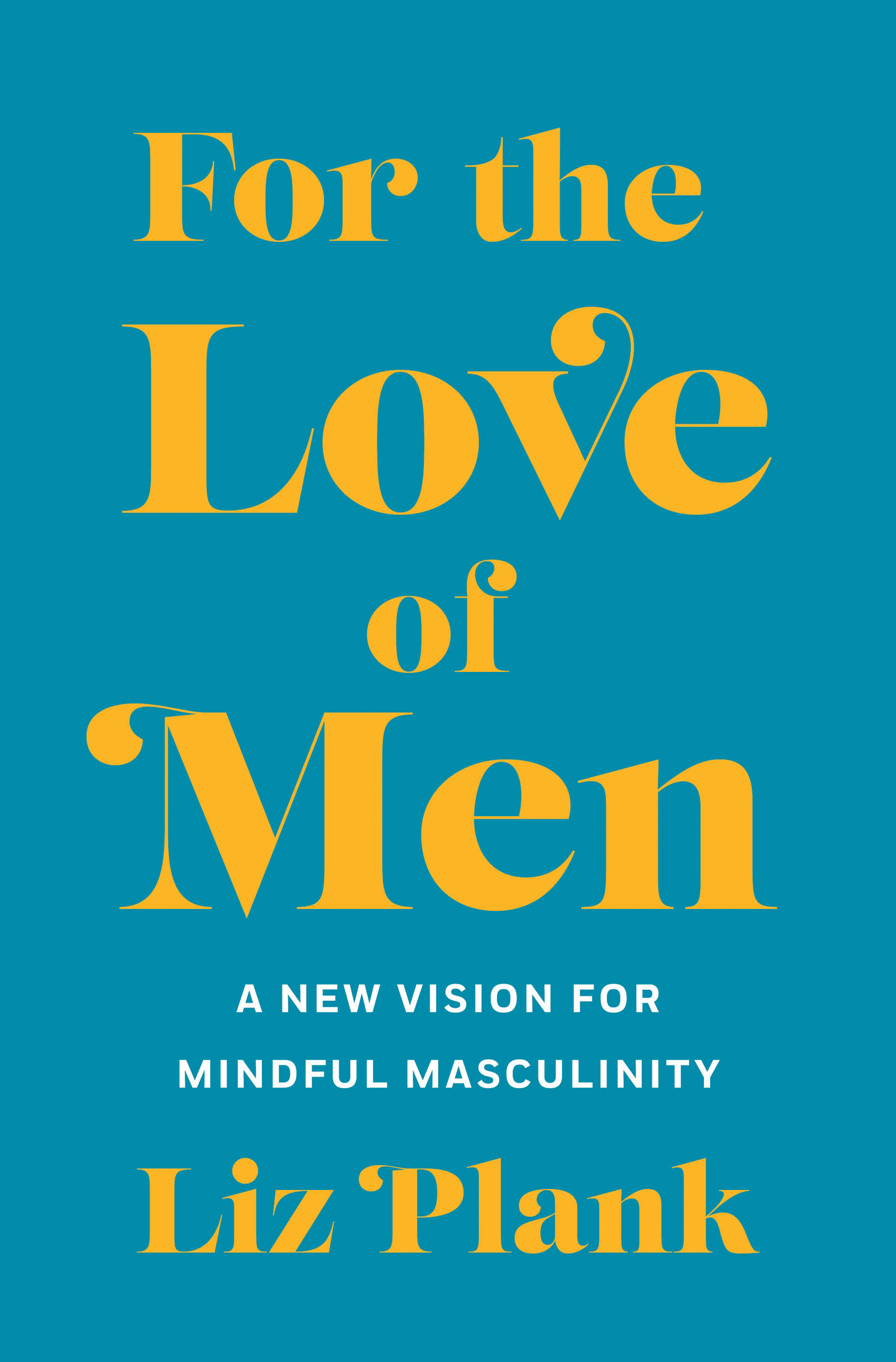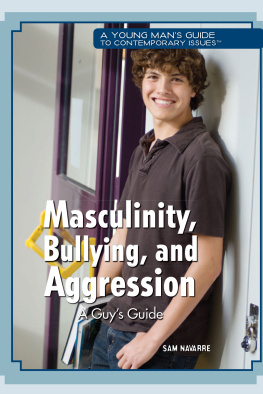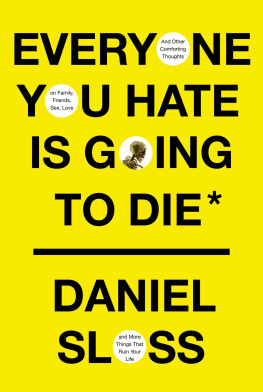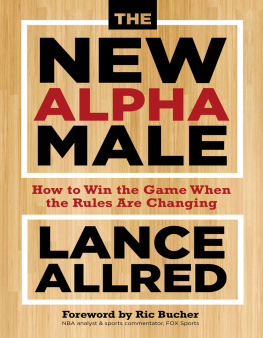Liz Plank - For the Love of Men: A New Vision for Mindful Masculinity
Here you can read online Liz Plank - For the Love of Men: A New Vision for Mindful Masculinity full text of the book (entire story) in english for free. Download pdf and epub, get meaning, cover and reviews about this ebook. year: 2019, publisher: ST MARTINS PR, genre: Science. Description of the work, (preface) as well as reviews are available. Best literature library LitArk.com created for fans of good reading and offers a wide selection of genres:
Romance novel
Science fiction
Adventure
Detective
Science
History
Home and family
Prose
Art
Politics
Computer
Non-fiction
Religion
Business
Children
Humor
Choose a favorite category and find really read worthwhile books. Enjoy immersion in the world of imagination, feel the emotions of the characters or learn something new for yourself, make an fascinating discovery.

For the Love of Men: A New Vision for Mindful Masculinity: summary, description and annotation
We offer to read an annotation, description, summary or preface (depends on what the author of the book "For the Love of Men: A New Vision for Mindful Masculinity" wrote himself). If you haven't found the necessary information about the book — write in the comments, we will try to find it.
Liz Plank: author's other books
Who wrote For the Love of Men: A New Vision for Mindful Masculinity? Find out the surname, the name of the author of the book and a list of all author's works by series.
For the Love of Men: A New Vision for Mindful Masculinity — read online for free the complete book (whole text) full work
Below is the text of the book, divided by pages. System saving the place of the last page read, allows you to conveniently read the book "For the Love of Men: A New Vision for Mindful Masculinity" online for free, without having to search again every time where you left off. Put a bookmark, and you can go to the page where you finished reading at any time.
Font size:
Interval:
Bookmark:


The author and publisher have provided this e-book to you for your personal use only. You may not make this e-book publicly available in any way. Copyright infringement is against the law. If you believe the copy of this e-book you are reading infringes on the authors copyright, please notify the publisher at: us.macmillanusa.com/piracy.
For my dad, who would
have much preferred this
book be about math
Between most chapters is a short essay about a man with interwoven identities that captures and reveals the urgency of a conversation about mindful masculinity. Thomas Page McBee, a journalist and author, who understood the challenges of being a real man when he transitioned. Victor Pineda, an immigrant with a disability, who challenges the myth of the so-called self-sufficient man. Wade Davis, one of the few openly gay members of the NFL, who grew up believing that being queer and a man were mutually exclusive. Glen Canning, a father who became an outspoken advocate for men to stop violence against women after his daughter took her own life. Maurice Owens, an advocate for boys of color, who followed an unlikely path to the White House. DArcee Charington Neal, a gay black man with a disability, who has a unique understanding of how cookie-cutter masculinity prevents the full expression of mens humanity. And Nicolas Juarez, a Mexican-American with Tzotzil ancestry, who has firsthand experience of how little indigenous men profit from a system built on outdated notions of masculinity that are aligned with white supremacy. This book cannot capture all of the complexities of the male experience, but these amuse-bouches are a start.
Why dont we say boys will be boys when a man wins the Nobel Peace Prize?
MICHAEL KIMMEL
Although the news often focuses on the threats of terrorism, natural disasters and nuclear war, there is no greater threat to humankind than our current definitions of masculinity.
Its a bold statement. If youve never thought about it, it may even seem overblown. But before you put this book down, take a moment to put a gender lens on men. In ten years of both academic and media reporting on gender theory, Ive long focused on the numerous consequences of the patriarchy for women, because theres no shortage of them. But when I started talking to men about their own gender, I was dumbfounded. It changed my entire outlook on feminism. I started to wonder why the lies that we tell about masculinity arent on the first page of every newspaper every single day of the year.
Psychologists have sounded the alarm. For the first time in its history, the American Psychological Association (APA) has created a set of explicit guidelines for practitioners treating men and boys. Their report warns therapists about the dangers of what they call traditional masculinity ideology negatively impacting mens mental health as well as physical health and well-being. Although the APA has often produced guidelines for therapists dealing with vulnerable populations like women, minorities or LGBTQ people, theyve identified that the falsehoods weve all absorbed about men are putting their own health at risk.
And this is not just an American problem. Its an international crisis. In China, recently a new term has emerged, , which translated from Mandarin means straight man cancer.
In Iceland its eitru karlmennska, which means toxic or poisonous masculinity. Hindi people in India refer to it as Mardaangi. In Qubec, where Im from, we call the guy who defines himself through domination of men and women un macho. His polar opposite, the man who is in touch with his feelings, is referred to pejoratively as lhomme rose, which translates to the pink man.
No matter what continent I visited and conducted interviews with men on, from Scandinavia to North America to Sub-Saharan Africa, I heard the same things over and over again. Toxic masculinity is an epidemic that knows no borders. No society has yet found the cure for it.
It presents itself in subtle ways, such as the way we raise boys differently from girls. It starts when we equate emotion with weakness and direct boys to display strength no matter what. It shows up in the way we expect and encourage girls to show their true emotions while we demand that boys hide them from us. It reveals itself in the way were more comfortable with the image of a boy playing with a toy gun rather than a boy playing with a toy doll, because were more comfortable seeing a boy hold something that kills rather than something that cries.
While weve spent a fair amount of time examining the negative effect of princesses and Barbies on the development of girls perception of themselves, we havent paused to question the consequences of the video games marketed to boys that have names like Manhunt, Thrill Kill and Mortal Kombat. We dont blink twice when the NRA releases a free target-shooting video game (one month after the Newtown massacre, no less) and marks it as suitable for boys ages 4 and up. We indoctrinate boys and it starts early.
As Mr. Rogers said during a Senate hearing on PBS funding in 1969, feelings are mentionable and manageable. But you wouldnt know that from the kind of programs targeted to boys today. In fact, Rogers was very critical of the violence both verbal and physical so often contained in the most mainstream shows shown to kids. I think that its much more dramatic that two men could be working out their feelings of angermuch more dramatic than showing something of gunfire, Mr. Rogers said. But before a boy can even make a choice about who he becomes, a cozy relationship with violence is encouraged, even rewarded, while proximity with tenderness is penalized. The violent images we feed boys have power. Just ask MIT scientists who were successfully able to create the worlds first psychopathic robot through one simple act: showing it the darkest corners of Reddit. They even named it after Norman Bates, the main character in Psycho. Violent men arent born; theyre created.
We live in a culture that teaches boys stoicism over authenticity, dominance over empathy, and that if they dont follow their script, someone will take notice and take their man card away. Boys are taught not to ask questions because asking for help would suggest a lack of leadership, instead of being an acute sign of it. Their behavior is highly monitored, their gender constantly surveilled for any sign of misstep or mistake. Boys become fluent in emotional self-censorship. They become anesthetized to feelings to avoid getting caught having any. The love is stripped away from them. As bell hooks argues in The Will to Change, boys learn that it is better to be feared than to be loved.
Under the current circumstances weve set as a culture, its an uphill battle for boys to find and reveal their true selves, and if they do its perceived and noted as a flaw. Whether its showing sadness or vulnerability, a core part of the human experience, its corrected with a simple statement underpinning the poisonous ideology we raise them into: boys dont cry. And when they act in horrifying ways, when they hurt, beat or assault others in a way that goes against the human spirit, what do we say? Boys will be boys. We are puzzled when boys act terribly, failing to realize that this is precisely the bar we set for them. We have such low expectations of boys that we made up a term for it. What message do these two most commonly used expressions about boys signal to them?
Font size:
Interval:
Bookmark:
Similar books «For the Love of Men: A New Vision for Mindful Masculinity»
Look at similar books to For the Love of Men: A New Vision for Mindful Masculinity. We have selected literature similar in name and meaning in the hope of providing readers with more options to find new, interesting, not yet read works.
Discussion, reviews of the book For the Love of Men: A New Vision for Mindful Masculinity and just readers' own opinions. Leave your comments, write what you think about the work, its meaning or the main characters. Specify what exactly you liked and what you didn't like, and why you think so.





